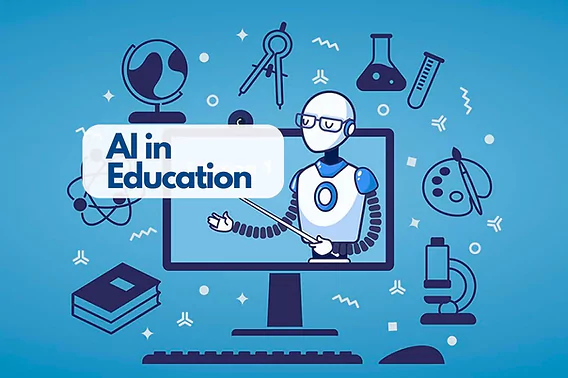AI Revolution in Education: Opportunities, Challenges, and the Path Forward
Updated on: 7th March, 2025

The advent of Artificial Intelligence (AI) has ushered in a transformative era across industries, and education is no exception. As AI continues to integrate into classrooms, it presents numerous opportunities to enhance learning experiences, improve accessibility, and personalize education. However, this revolution also brings challenges that require careful consideration. This blog aims to raise awareness and sensitize educators, policymakers, and students about the impact of AI in education, while exploring its opportunities, challenges, and the path forward.
Opportunities of AI in Education
AI in education offers transformative opportunities by enabling personalized learning, where AI-powered systems adapt content to students’ individual needs, ensuring better engagement and comprehension. It enhances accessibility through assistive technologies like speech-to-text and real-time translations, benefiting students with disabilities. Intelligent tutoring systems provide instant feedback, supporting learners beyond classroom hours.
AI also automates administrative tasks, reducing educators' workload and allowing them to focus on teaching. Additionally, data-driven insights help educators identify learning gaps and implement targeted interventions. Through virtual and augmented reality, AI fosters immersive learning experiences, making complex subjects more engaging and interactive.
Challenges of AI in Education
AI in education presents several challenges that must be addressed for its effective implementation. Data privacy and security remain major concerns as AI systems collect vast amounts of student information, raising risks of misuse. Ethical considerations, including biases in AI algorithms, can lead to disparities in learning experiences. Additionally, the digital divide prevents equitable access to AI-driven tools, especially in underprivileged areas.
Over-reliance on AI may weaken the teacher-student relationship, reducing the human element in education. Furthermore, educators require proper training to integrate AI effectively, and without it, the technology's full potential may remain untapped. Addressing these challenges requires a balanced approach, combining policy frameworks, infrastructure development, and ethical AI usage.
The Path Forward
To maximize the benefits of AI while addressing its challenges, a balanced approach is necessary. Policymakers and educational institutions must establish ethical AI usage policies and invest in digital infrastructure to ensure equitable access. Continuous professional development programs should train educators to integrate AI effectively into classrooms. A collaborative effort between educators, policymakers, and tech developers will help create AI tools that align with pedagogical goals. Additionally, ethical AI development should prioritize transparency, fairness, and inclusivity. By adopting a responsible approach, we can harness AI’s potential to enhance education while preserving the essential human touch in learning.
The AI revolution in education holds immense potential to redefine learning experiences, making them more personalized, inclusive, and efficient. However, the challenges it presents must be addressed thoughtfully to ensure that AI serves as a tool for empowerment rather than exclusion. As educators, policymakers, and learners embrace AI-driven innovations, a responsible and ethical approach will pave the way for a future where technology enhances, rather than replaces, the human touch in education.
At the Faculty of Education, SGT University, we are committed to fostering awareness and sensitization about emerging educational trends. By embracing AI responsibly, we can shape an educational landscape that is innovative, inclusive, and future-ready.
Ms. Priyanka Yadav
Assistant Professor,
Faculty of Education
SGT University, Gurugram

